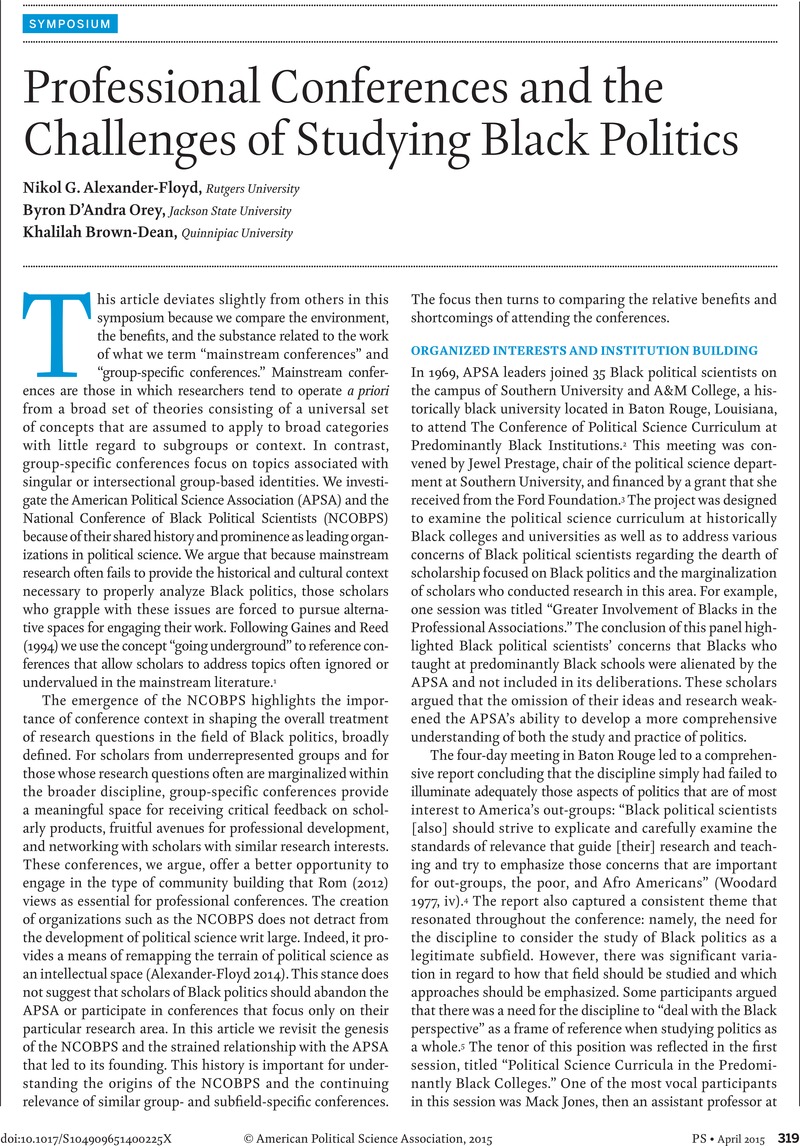Crossref Citations
This article has been cited by the following publications. This list is generated based on data provided by Crossref.
Baron, Ilan Zvi
Havercroft, Jonathan
Kamola, Isaac A.
Koomen, Jonneke
and
Prichard, Alex
2020.
Flipping the Academic Conference, or How We Wrote a Peer-Reviewed Journal Article in a Day.
Alternatives: Global, Local, Political,
Vol. 45,
Issue. 1,
p.
3.
Taylor, James Lance
2021.
The Politics of the Black Power Movement.
Annual Review of Political Science,
Vol. 24,
Issue. 1,
p.
443.





